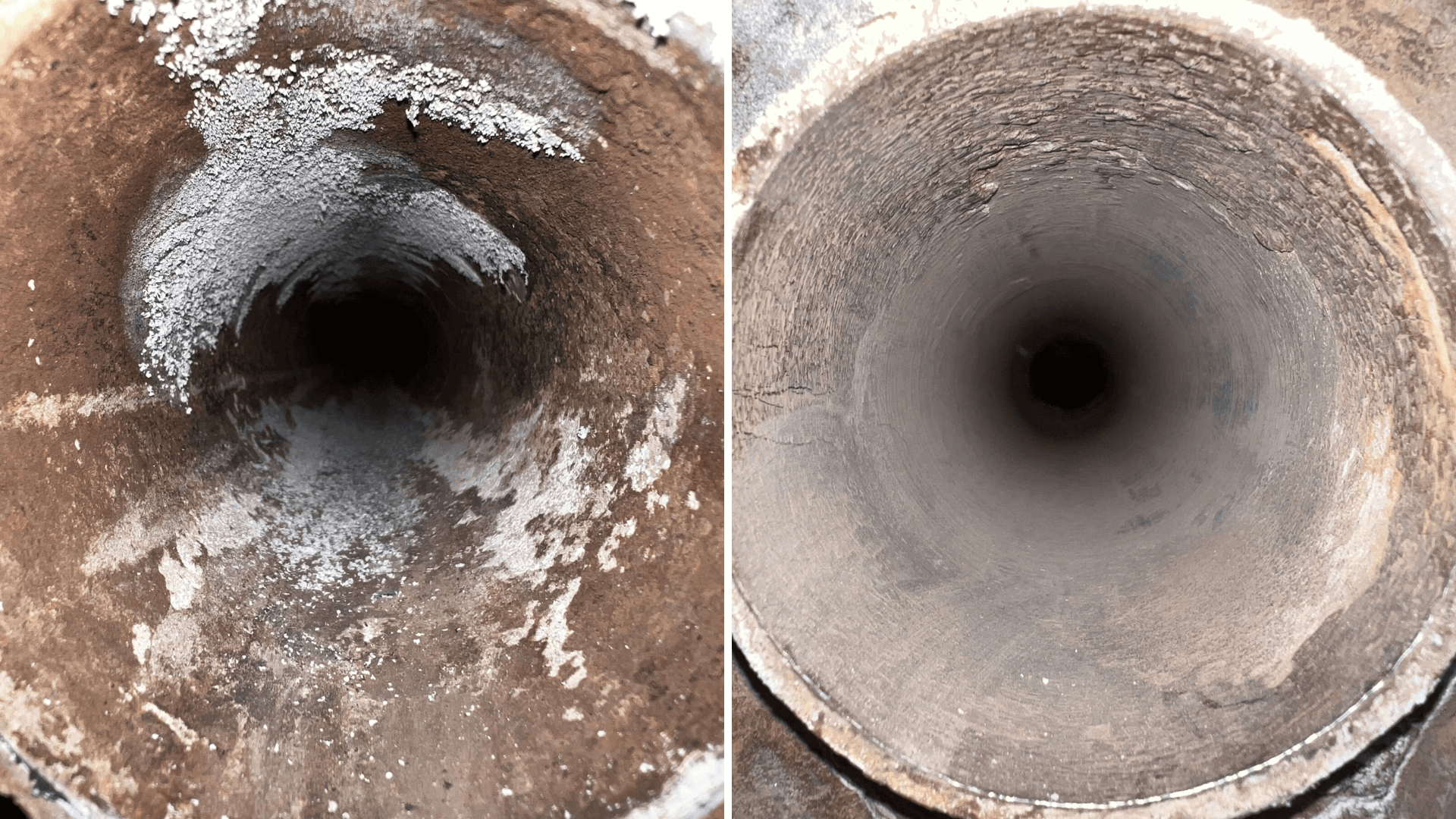
Boiler Tube Cleaning
Goodway Benelux supplies equipment to clean the fire tubes of boiler systems. In time, these will become fouled, leading to a reduced efficiency of the installation.
Read moreThe AWT-100X is Goodway's most powerful device developed to clean heat exchanger tubes and pipes. The system is air-powered and therefore a favorite in the industrial cleaning sector. The device can be used with or without water.
The AWT-100 is a powerful device developed to clean heat exchanger tubes and piping. The system is air-powered and therefore a favorite in the industrial cleaning sector. The device can be used with or without water.
The RAM-4X is a powerful device developed to clean heat exchanger tubes and piping. The system is equipped with a powerful motor for heavy-duty tube cleaning. The device can be used with or without water.
Black, flexible shafts are used for dry cleaning activities on various installations. Such as; boiler fire tubes, heat exchangers and production- / transport lines. Equipped with a high temperature resistant outer layer (up to 149°C).
Flex hub centrifugal scrapers are used to remove hard deposits from tubes. With 4 different scrapers you can clean tubes from 13-102 millimeters (internal diameter). Also applicable for blocked tubes.
Nylon abrasive brushes are designed to clean internal tubes starting from 25 millimeters. The brushes are versatile and work best with a Goodway mechanical tube cleaning system.
Flare Brushes incorporate centrifugally activated wire cables with cobalt tips that lightly "whip" around on the inside of tubes removing scale and deposits.
Mechanical cleaning of boiler fire tubes
Mechanical cleaning is an effective method to remove all kinds of deposits from boiler fire tubes. A brush or scraper rotates at high speed in the tube, creating friction, which quickly releases the deposit on the tube wall. By simultaneously using a vacuum system, the loosened deposits can be immediately extracted and collected. A mechanical cleaning of boiler fire tubes is performed dry, no water is used during the cleaning process.
Application and deposits
Boiler fire tubes can become fouled pretty quickly. It is therefore important to clean them on a preventive basis before blockages and malfunctions occur. Depending on the type of fuel and usage, cleaning can take place every 3-6 weeks. If no cleaning is done, the deposits can accumulate and eventually lead to clogged tubes, which is detrimental to the efficiency of the installation. Common types of deposits in fire tubes are:
- Ash/dust
- Soot
- Scale
Depending on the hardness and degree of fouling, a nylon brush or hard metal scrapers can be utilized. These will rotate at high speed in the tubes and thus loosen and remove the deposits in combination with a vacuum system/extraction.

Advantages of a mechanical cleaning
A mechanical tube cleaning offers various advantages for the customer and equipment. Some of them have been listed below.
- There are many different brushes and scrapers available, so that different tube diameters and types of deposits can be removed. It is also possible to open up clogged tubes.
- A rotating brush or scraper is larger than the tube diameter and therefore creates continuous friction, which is very effective in loosening deposits. Tube cleaning with rotating brushes gives the best cleaning results when compared to traditional methods such as high pressure lancing and manual cleaning with rods.
- Tube cleaning equipment is easy-to-use and requires little training, allowing technicians and engineers to perform the cleaning themselves.
Cleaning the outer side
Most fire tube boilers are connected to a water treatment to prevent deposit buildup on the outer side of the fire tubes, such as limescale. However, it is possible that the water treatment does not function correctly or that for whatever reason limescale forms on the outer side of the fire tubes. In that case, the deposit must be removed in order to keep the heat transfer and thus the efficiency at an optimal level. A thin layer of limescale can already have a detrimental effect on the heat transfer. Read more about chemically cleaning the outer side of fire tubes here.







